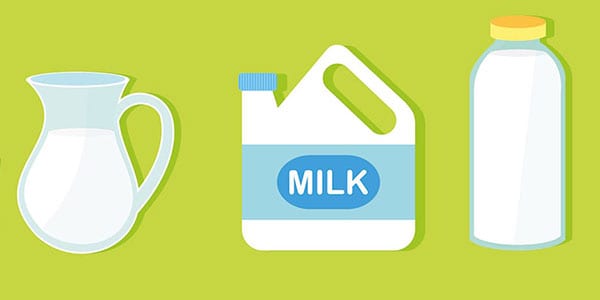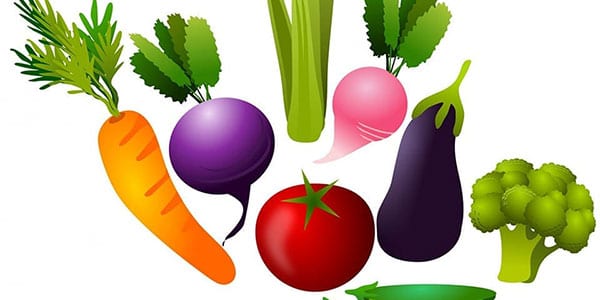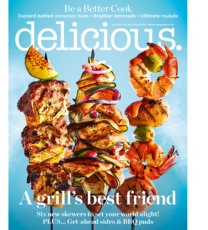Do CBD-infused foods have any health benefits?
The world is awash with CBD, a compound in cannabis plants called cannabidiol. It’s finding its way into a smorgasbord of food and drink, from coffee, bottled water and alcohol to energy bars, chocolate and pastries. But can these products deliver any of the claimed health benefits – and does CBD need proper regulation? Sue Quinn leafs through the evidence.

Cannabis itself is arguably the world’s oldest medicine, cultivated for thousands of years for therapeutic purposes and even administered to Queen Victoria to relieve her period pain. But interest in the cannabis compound CBD has surged in the past couple of years after it was found to be an effective treatment for Dravet syndrome, a severe form of epilepsy in children.
Since then, amateur ‘wellness’ experts – who often sell CBD products on their websites – have claimed the compound is a cure for an extraordinary array of conditions including (but not confined to) insomnia, sleepiness, migraines, acne, ADHD, cancer, diabetes, depression, cardiovascular disease, epilepsy, joint pain and mental health problems. Food and drinks manufacturers have seized on the claims with the result that an ever-growing array of products
are now infused with CBD and available on the high street, including chocolate, water and even gummy bears.
What is CBD?
It’s just one of 120 known cannabinoid compounds found concentrated in the flowers and leaves of cannabis plants. Doctors and scientists generally agree, and it’s stated on the NHS website that CBD has ‘medical benefits’. In the UK, however, CBD can only legally be sold if it contains 0.2 per cent or less of the psychoactive compound THC (tetrahydrocannabinol), which means it cannot make you ‘high’.

Over-the-counter CBD products are generally extracted from hemp, a variety of cannabis that contains negligible amounts of THC. Two medicines containing high doses of CBD are now approved for conditions including epilepsy and multiple sclerosis, and to treat the side-effects of cancer treatment. However, researchers are still investigating the benefits and limitations of CBD on human health, along with any potential risks of long-term use and the most effective way of taking it.
Where’s the evidence?
The most robust scientific evidence of CBD’s therapeutic benefits relates to the treatment of anxiety, epilepsy and schizophrenia, according to Dr Franjo Grotenhermen, executive director of the International Association for Cannabinoid Medicines (IACM). Other studies suggest it might also be useful for depression, insomnia and post-traumatic stress disorder. But Dr Grotenhermen doubts the amount of CBD in food and drink products is enough to deliver any benefit.
“Food and drink tend to contain very low doses of CBD and you can’t expect relevant psychological or physical effects,” he says. Treatment for schizophrenia, for example, involves doses of up to 800mg, while 50mg doses have been shown to be effective for anxiety. “In CBD-infused food or drink there are usually only a few milligrams,” Dr Grotenhermen says. “If people buy products with only minimal amounts of CBD, it’s a waste of money.”
A unique situation
The problem is, it’s impossible for consumers to know how much CBD a food or drink contains, or even whether the extracts are suitable for use in those products. That’s partly because regulators have been caught unawares by the surge in popularity of CBD.
The Food Standards Agency (FSA) has confirmed to delicious. that many CBD extracts available in the UK, including those used in food and drink, are technically being sold illegally. This unique situation has arisen because manufacturers had, in effect, been using a loophole in the law and selling CBD as a hemp product. (Industrial hemp is grown under license in the UK for things like building materials, clothing and cooking oil.)

To clarify the situation, the FSA classified CBD as a novel food in January 2019, which means the extracts must now be authorised before going on sale. “As part of this process the authorisation will specify what type of products it can be used in,” an FSA spokesperson said. “For example, if a business wants to use CBD in cakes, they will need to use an extract that’s been previously approved for use in baked goods.”
The FSA is now working across various industries to ensure the products comply with the law. The safety of CBD extracts will be assessed on a case-by-case basis as part of the authorisation process, and the FSA will also be carrying out an extra risk assessment. “But there is little evidence at present to suggest any safety concerns,” the spokesperson added.
It’s worth noting that in the US, CBD is a prescription drug under federal law and cannot legally be sold in food or drink. But after years of not enforcing the law, authorities in New York City and California have now ordered restaurants and cafés to remove CBD from lattes, smoothies, muffins and other foods.
Is it safe to use?
Roger Pertwee, Emeritus Professor at the University of Aberdeen and one of the world’s leading experts on medicinal cannabis, believes CBD has the potential to treat a wide range of ailments. But he wants to see further clinical trials of treatments using the compounds, and says over-the-counter CBD products need to be regulated in the same way as alcohol. “At the moment, consumers have no idea what they’re buying,” he says.
Shoppers need clear and accurate information about the purity, concentration and the best way to take CBD products. Until that happens, is CBD-infused food and drink safe? Professor Pertwee says ingesting CBD in high doses can impair liver function and interfere with certain other medications, which is why some cannabis-based medicines are taken as mouth sprays.
Taking too much CBD can, in some cases, lead to severe sleepiness (somnolence), as well as vomiting and diarrhoea. “But as far as we know, at the moment cannabidiol (CBD) is a relatively safe drug and there are very few known side effects,” says Professor Pertwee.
The bottom line
CBD is believed to have medical benefits and research is rapidly increasing, but many of the claimed therapeutic effects are not yet supported by clinical evidence. Food and drink infused with the compound probably contain insufficient amounts to have the lauded beneficial effects.
Subscribe to our magazine
Food stories, skills and tested recipes, straight to your door... Enjoy 5 issues for just £5 with our special introductory offer.
Subscribe
Unleash your inner chef
Looking for inspiration? Receive the latest recipes with our newsletter